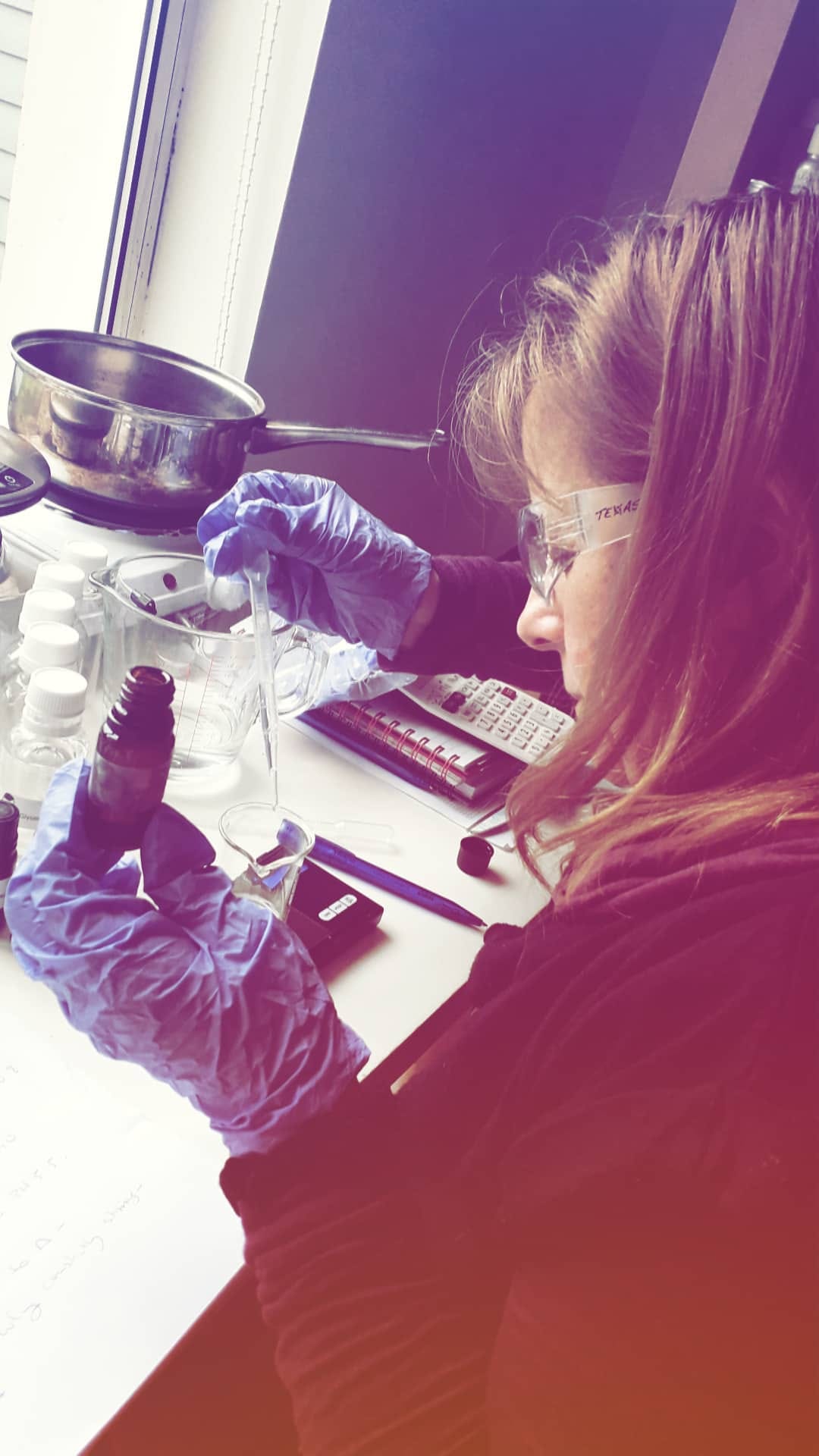What is a cosmetic formulator? What do they do?
A cosmetic formulator plays a crucial role in the development and creation of cosmetic and skincare products. They are responsible for designing, testing, and optimizing formulations to meet specific performance, safety, and regulatory requirements. Here’s a detailed overview of what a cosmetic formulator does:
Key Responsibilities
- Product Development:
- Conceptualization: Working with marketing teams to understand product concepts, target audience, and market trends.
- Formulation Design: Creating formulas that meet the desired product specifications, such as texture, scent, color, and efficacy. To learn this beautiful unique skill where art and science merges enroll my online skincare formulation course
- Ingredient Selection:
- Research and Sourcing: Identifying and sourcing raw materials and active ingredients that meet quality standards and regulatory requirements.
- Compatibility: Ensuring the compatibility of different ingredients to achieve the desired stability and performance.
- Formulation and Testing:
- Lab Work: Mixing and testing ingredients in a lab setting to develop prototypes.
- Stability Testing: Conducting tests to ensure the product maintains its integrity over time under various conditions.
- Efficacy Testing: Testing the product to ensure it delivers the promised benefits.
- Safety and Regulatory Compliance:
- Safety Assessments: Performing or overseeing safety evaluations to ensure formulations are safe for consumer use.
- Regulatory Compliance: Ensuring formulations comply with local and international regulations, including ingredient restrictions and labeling requirements.
- Optimization and Troubleshooting:
- Improving Formulas: Refining formulations based on test results, consumer feedback, and production constraints.
- Problem-Solving: Addressing issues such as stability problems, ingredient interactions, and sensory attributes.
- Collaboration:
- Cross-Functional Teams: Working closely with marketing, manufacturing, quality assurance, and regulatory teams.
- Suppliers: Communicating with raw material suppliers to obtain the necessary documentation and samples.
- Documentation:
- Record-Keeping: Maintaining detailed records of formulations, test results, and modifications.
- Regulatory Documents: Preparing and submitting regulatory documents, including product dossiers and safety assessments.
Skills and Qualifications
- Education:
- Degree: A degree in chemistry, biochemistry, chemical engineering, or a related field is typically required.
- Advanced Knowledge: Specialized courses or certifications in cosmetic science can be beneficial.
- Technical Skills:
- Formulation Science: Understanding the principles of cosmetic formulation, including emulsions, suspensions, and gels. To learn the principles of cosmetic formulation without the need of doing a degree enroll in my shortcut course here
- Analytical Techniques: Proficiency in analytical techniques and laboratory equipment.
- Regulatory Knowledge:
- Compliance: Familiarity with cosmetic regulations and standards in different regions (e.g., FDA in the U.S., EU Cosmetics Regulation in Europe).
- Creativity and Innovation:
- Product Development: Ability to innovate and create unique formulations that stand out in the market.
- Attention to Detail:
- Precision: Meticulous attention to detail in measuring, testing, and documenting formulations.
- Problem-Solving:
- Troubleshooting: Strong problem-solving skills to address formulation challenges and optimize products.
Daily Activities
- Laboratory Work:
- Conducting experiments and developing new formulations.
- Testing the stability and efficacy of products.
- Meetings and Collaboration:
- Discussing product requirements with marketing and product development teams.
- Coordinating with regulatory and quality assurance teams to ensure compliance.
- Research:
- Staying up-to-date with industry trends, new ingredients, and technological advancements.
- Reviewing scientific literature and attending industry conferences.
- Documentation:
- Recording experimental procedures and results.
- Preparing reports and regulatory submissions.
Career Path and Opportunities
- Entry-Level Positions: Junior formulator, laboratory technician.
- Mid-Level Positions: Cosmetic formulator, formulation chemist.
- Senior Positions: Senior formulator, R&D manager, director of product development.
- Specializations: Some formulators may specialize in specific areas like skincare, haircare, color cosmetics, or natural/organic formulations.
Conclusion
A cosmetic formulator is essential to the creation of effective, safe, and appealing cosmetic products. They combine scientific knowledge, creativity, and regulatory expertise to bring new beauty products from concept to market. This role is integral to the innovation and success of cosmetic and skincare brands.
